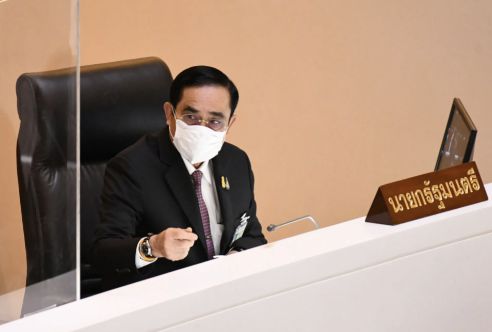China’s Sinovac Vaccine Caught in the Crossfire of Thai Politics

China’s Sinovac Vaccine Caught in the Crossfire of Thai Politics
Thai disdain for the government is now being conflated with anti-China rhetoric by officials in Beijing. A recent statement released by China stated that “people and organisations in Thailand had “devalued and smeared the Chinese [coronavirus] vaccine for no reason”” (SCMP, 2021). Accusations of “malicious slander” and destruction of “China’s goodwill in support of the Thai people in their fight against COVID” (SCMP, 2021). Although this messaging is aggressive in terms of diplomacy, China’s rationale behind this message does not go unrecognized. Caught in the crossfire between a divided nation, many anti-government protestors have been focused on Thailand’s reliance on the Sinovac vaccine.
One would never think vaccines would become so political, but with the COVID-19 pandemic, vaccines play an increasing role within and between countries. Much of the criticism against Sinovac lies within people’s criticism of PM Prayuth. Thailand approved the use of Sinovac in February 2021, but with the Delta variant, COVID cases have spiked with not enough vaccines in the country, allowing the virus to rampantly spread. Critics say this lack of planning cost lives and money, with over 13,000 fatalities and a GDP drop of 6.1%. Sinovac’s reputation also faltered a little when it was announced that a booster shot in conjunction with the two-dose regimen would be needed. In a country where only 11% of the population is fully vaccinated, the focus on an added booster shot when people didn’t have access to their first dose was infuriating for many.
Voices of the public as well as professors and scholars on international relations and political science have been heard, with perspectives ranging from sympathy for China to belief that the statement was inappropriate. Sitthiphon Kruarattikan, a China studies scholar and an associate professor at Thammasat University, believes that the public opinion on Sinovac is not a direct attack on China but rather on Prayuth. Pongphisoot Busbarat, an assistant professor of international relations at Chulalongkorn University, believes that Beijing’s image had been hurt by Prayuth’s administration and management of the vaccine. Pongphisoot also suggests that the use of Chinese vaccines “by the Thai government, especially Sinovac, in many ways, can be seen as a diplomatic tool to maintain Sino-Thai relations.” It is interesting to see how health can be channeled into a political tool.